Ashfield considers seeking ‘Climate Leader’ designation
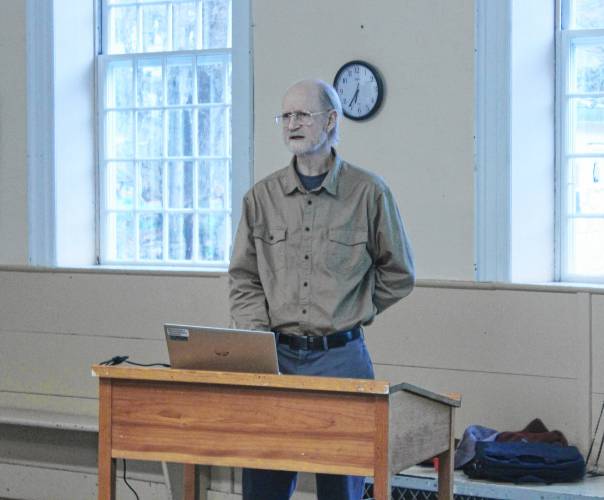
Chris Mason, with the Massachusetts Department of Energy Resources, speaks during a presentation at a public forum at Ashfield Town Hall on Wednesday. Ashfield must decide if it wants to try to achieve a “Climate Leader” designation from the state. STAFF PHOTO/DOMENIC POLI
| Published: 04-25-2024 2:35 PM |
ASHFIELD — The town is seeking a “Climate Leader” designation from the state that would help it reduce emissions by increasing its use of equipment run on electricity rather than those requiring fossil fuels, and maximizing the efficiency of buildings and transportation.
The Energy Committee hosted Chris Mason from the state Department of Energy Resources last week for a presentation followed by questions from some of the 35 residents who attended. Mason explained the framework for achieving designation status to the Climate Leader Communities program and awarding grant funds to municipalities for energy-efficiency projects was created by the Green Communities Designation and Grant Program in 2008.
“We’re assuming that there’s going to be grants, both federal and state support, to help this, because that’s where the state is going,” he said during his presentation.
Unlike the Green Communities Designation and Grant Program, the Climate Leader program requires recertification every three years. State law requires Massachusetts to cut total greenhouse gas emissions at least 85% below 1990 levels by 2050, and offset any remaining emissions by removing an equal or greater amount of carbon dioxide or its equivalent from the atmosphere. Three articles on the warrant for the May 3 annual Town Meeting pertain to a potential Climate Leader designation.
Mason explained the program’s Zero Emission-First Vehicle Policy stipulates that the acquisition of zero-emission vehicles must be prioritized whenever a town vehicle needs replacing. There is also an efficiency hierarchy that must be followed — the first priority must be battery electric or fuel cell electric vehicles. If those are not available, the next priority must be plug-in hybrid electric vehicles.
But resident John Angleman argued that the program seems highly restrictive and eliminates energy options for homeowners, and this will likely deter people from moving into town. He asked Mason if he would move to Ashfield and build a home with this program in place, and the state employee said he would.
“I don’t think it’s a big lift,” Mason replied.
Brad Scudder said he is building a net-zero home in Ashfield but has concerns about a potential Climate Leader designation. He said the grants will be small in comparison to the cost of building a home. He also said the finite amount of grants will likely be awarded to more densely populated municipalities in eastern Massachusetts. Scudder advocated for slowing down this process and called for a community impact study.
Article continues after...
Yesterday's Most Read Articles
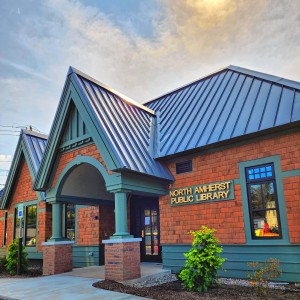 ‘Home away from home’: North Amherst Library officially dedicated, as anonymous donor of $1.7M revealed
‘Home away from home’: North Amherst Library officially dedicated, as anonymous donor of $1.7M revealed
 ‘We can just be who we are’: Thousands show support for LGBTQ community at Hampshire Pride
‘We can just be who we are’: Thousands show support for LGBTQ community at Hampshire Pride
 South Hadley man killed in I-91 crash
South Hadley man killed in I-91 crash
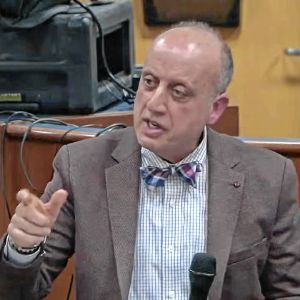 Retired superintendent to lead Hampshire Regional Schools on interim basis while search for permanent boss continues
Retired superintendent to lead Hampshire Regional Schools on interim basis while search for permanent boss continues
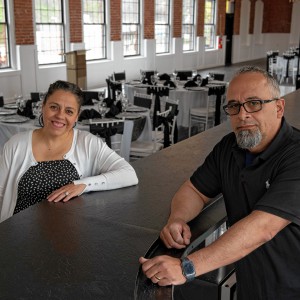 A Waterfront revival: Two years after buying closed tavern, Holyoke couple set to open new event venue
A Waterfront revival: Two years after buying closed tavern, Holyoke couple set to open new event venue
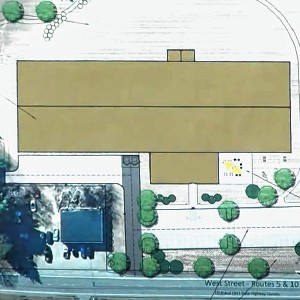 Proposed Hatfield pickleball/tennis building raising eyebrows
Proposed Hatfield pickleball/tennis building raising eyebrows
Kyle Taylor, who identified himself as a former Finance Committee member, said required maintenance and replacements “will cost taxpayers a lot of money” and there won’t be many grants available.
Energy Committee Chair Alexandra Osterman said it was discouraging to hear so many negative comments at the forum, but she feels the state program still has a lot of support in town.
“Ashfield’s a town with diverse options on various issues,” she said the following day. She also said inaction on climate change is a significant threat to the planet.
She explained the Energy Committee last year partnered with the UMass Clean Energy Extension, which researched where in town solar could be added “and what it would take for the town to reach various goals.”
Osterman said Ashfield has received at least $175,000 in Green Communities grants and Brian Clark, her Energy Committee colleague, said the town has leveraged “that money with volunteer work and other contributions for the town to … really do things that were worth two or three times what the grant was.” Like Osterman, Clark believes Ashfield’s residents are largely agreeable to getting a Climate Leader designation.
Reach Domenic Poli at: dpoli@recorder.com or 413-930-4120.

 Doors open at Tilton Library’s temporary home at South Deerfield Congregational Church
Doors open at Tilton Library’s temporary home at South Deerfield Congregational Church Area property deed transfers, May 2
Area property deed transfers, May 2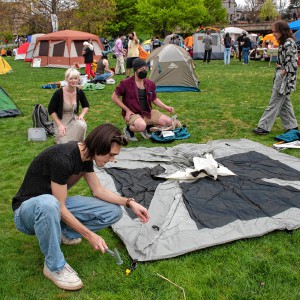 Pro-Palestinian encampment disperses at UMass, but protests continue
Pro-Palestinian encampment disperses at UMass, but protests continue
